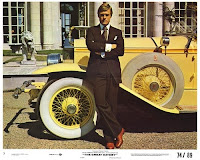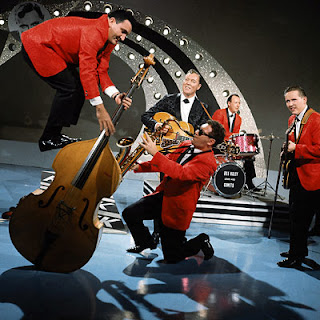Collaborating on fourteen operas in their career, Gilbert and Sullivan are an impressive pair as they created some of the best-known musicals in history. Each musical is even more absurd than the last, and they almost seem to take pleasure in ridiculing the different characters they have created. Both were born in London in the early 1800s, and when they started writing for the theater, its popularity was at an all-time low. Their first work, Thespis, was done in 1871 and was wildly popular in London. However, their first international hit was the H.M.S Pinafore, which ran for over 500 performances in London, the second longest run in recorded history.

The comic opera The Pirates of Penzance was first performed in New York City in December of 1879. It was written by Gilbert and Sullivan, a famous musical duo from London that brought their work to the United States to undercut the American copyright laws. Since foreigners were not protected in the US, they decided to bring the premier here to avoid replications in the United States. One of the most famous songs in this musical is “Modern Major General” as it is not just entertaining, but one of the hardest songs to sing in a musical. Very fast paced with difficult words and a unique rhyming scheme, the song is a very elaborate tongue twister that supposedly dictates the knowledge of a modern major general. While Gilbert and Sullivan were not American citizens, their change within the realm of theater changed how plays were written in the US and the roles of music within the plays.
Even though this musical was written almost 140 years ago, it is still wildly popular today due to its timeless humor and its ridiculous storyline. Updated in 1980 for a more contemporary audience, the light opera is still a parody as it pokes fun of class establishments and Victorian morals. The modern version is even more lighthearted than the original as the pirates now sail across the stage on a mini-ship with cardboard waves. However, the overall meaning remains the same- it still has humor, some dialogue to keep the story going, and a ridiculously happy ending where the boy gets the girl. It is often used to represent this light opera period due to its ability to connect with the audience.
Another reason that this musical has endured is that it pokes fun at normally serious or professional roles, such as police officers and generals in the army. The police are a cowardly group of men who hide at the smallest hint of danger while the general himself lies to the pirates about being an orphan. Making fun of those in charge has always been a productive pastime. The ceaseless energy of the opera from start to finish also draws people in as their energy adds to the story’s appeal.
 This play has always been one of my favorites, and the song “Modern Major General” has always fascinated me with its crazy rhymes and fast-pace style. I choose to do a parody of this song because I wanted to try to match the rhyming scheme that Gilbert and Sullivan had created. However, such a thing is not possible- while my piece is funny and light, it cannot even compare with the original version. Their lyrics are a work of genius. Further, the original general in the premier of the opera must have possessed the lungs of an elephant to go through the song as quickly as they wanted. Overall, their work cannot be matched unless another genius comes along and creates something extraordinary. The work put into the song though, was fun as I created a sort of storyline to go along with the piece instead of weaving nonsensical rhymes together.
This play has always been one of my favorites, and the song “Modern Major General” has always fascinated me with its crazy rhymes and fast-pace style. I choose to do a parody of this song because I wanted to try to match the rhyming scheme that Gilbert and Sullivan had created. However, such a thing is not possible- while my piece is funny and light, it cannot even compare with the original version. Their lyrics are a work of genius. Further, the original general in the premier of the opera must have possessed the lungs of an elephant to go through the song as quickly as they wanted. Overall, their work cannot be matched unless another genius comes along and creates something extraordinary. The work put into the song though, was fun as I created a sort of storyline to go along with the piece instead of weaving nonsensical rhymes together.






